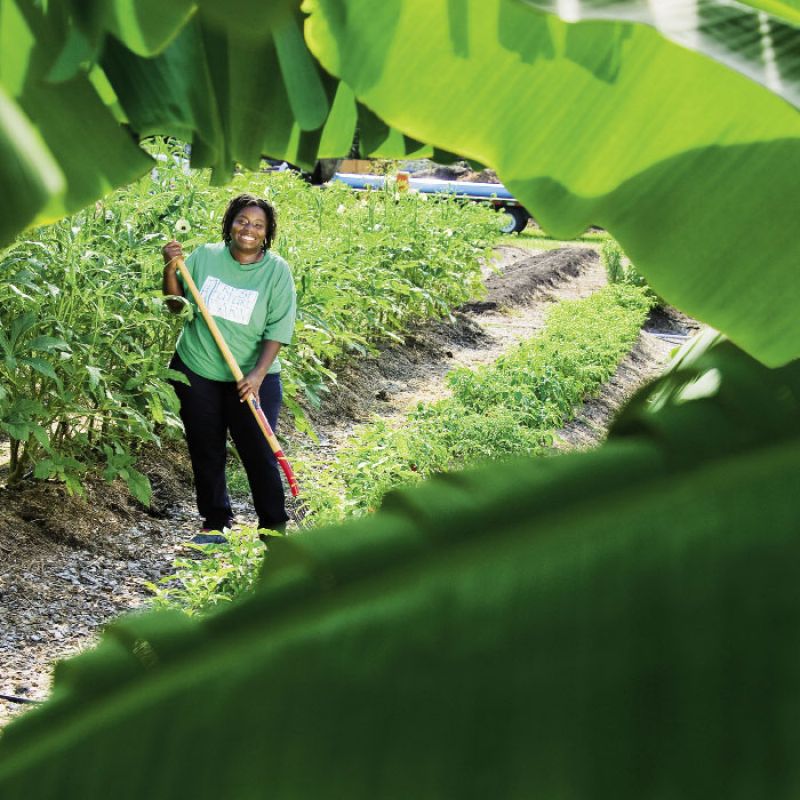
Born: In the Peedee area of South Carolina, but raised in Ohio
Lives: In North Charleston with husband Anthony, daughter Anika (19), and son Adrian (16); stepson Tony is 14.
Favorite plant: At the moment, blueberry bushes, “but no disrespect to the other veggies!” she says.
How locals can join the work crew: Volunteer hours at Fresh Future Farm are Wednesdays from 3:30-5 p.m. and the first and third Saturdays of the month from noon to 4 p.m. At the community garden, work teams meet every second Saturday of the month from 9 a.m. to 2 p.m. (there’s a potluck lunch at noon).
At the Chicora Place Community Garden in North Charleston’s Chicora-Cherokee neighborhood—an official food desert, per the USDA—15 garden beds and planters overflow with fruits and veggies. Less than half a mile away at Fresh Future Farm, a commercial and educational urban farm and store scheduled to open later this fall, stands a food forest: a curated community of produce-producing flora including herbs, blueberry bushes, apple trees, and more. The driving force behind it all is Germaine Jenkins, a certified Master Gardener who established the garden in 2011 and recently founded the farm. Here, the North Charleston resident fills us in on both ventures.
CM: How did you get into gardening?
GJ: As a 30-year-old single mom, I left a full-time job to attend Johnson & Wales University. We lived in public housing and needed food. I went to pantries, but they served processed foods that I wouldn’t normally buy for my kids. I said: when we leave public housing, we are going to get a house, and that house is going to have a garden. Fast forward to 2007, and we owned a house; soon we had vegetables everywhere.
CM: What inspired the community garden?
GJ: In 2008, I got involved with Metanoia, the community development nonprofit that sold us our home. I became a board member and started attending seminars on how neighborhoods like ours could be revitalized. Many success stories were connected to food.
CM: How has it effected the neighborhood?
GJ: People who volunteer in the garden, which is sponsored by Metanoia, take home seeds, plants, and produce. Before it opened, a few people in the neighborhood gardened. Since then, at least eight home gardens have been started.
CM: What is Fresh Future Farm’s goal?
GJ: We’re trying to take what we did at the community garden and apply it to a commercial venture to generate income that will stay in the neighborhood. The farm store will sell the produce we grow, which will be more affordable than at neighborhood grocery stores. We’ll also offer guided tours of the farm and give tips for urban gardening.
CM: What kind of tips are we talking?
GJ: You know those clear plastic drawers you see at yard sales and big-box stores? You can turn those into mini greenhouses!